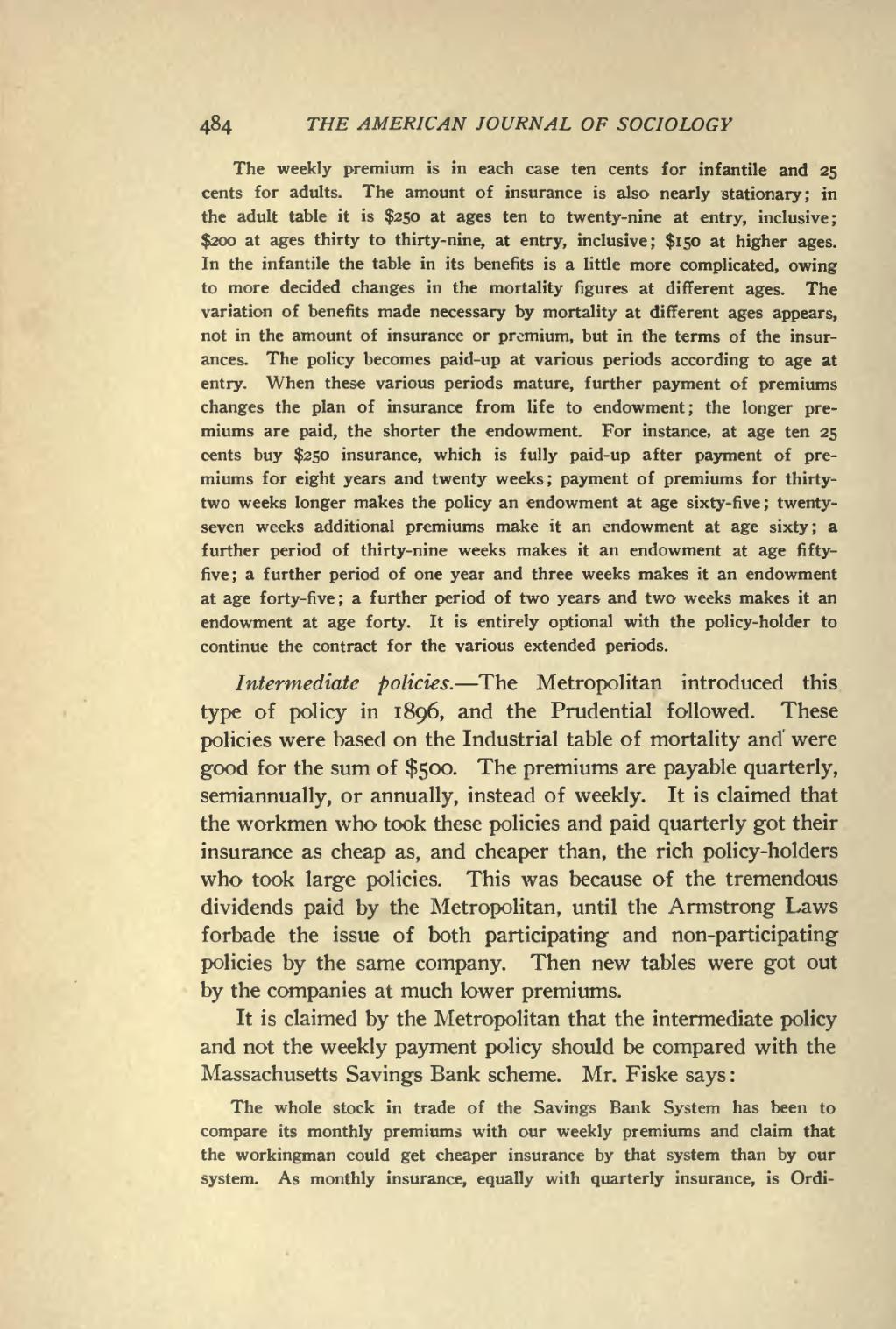484 THE AMERICAN JOURNAL OF SOCIOLOGY
The weekly premium is in each case ten cents for infantile and 25 cents for adults. The amount of insurance is also nearly stationary; in the adult table it is $250 at ages ten to twenty-nine at entry, inclusive; $200 at ages thirty to thirty-nine, at entry, inclusive; $150 at higher ages. In the infantile the table in its benefits is a little more complicated, owing to more decided changes in the mortality figures at different ages. The variation of benefits made necessary by mortality at different ages appears, not in the amount of insurance or premium, but in the terms of the insur- ances. The policy becomes paid-up at various periods according to age at entry. When these various periods mature, further payment of premiums changes the plan of insurance from life to endowment; the longer pre- miums are paid, the shorter the endowment. For instance, at age ten 25 cents buy $250 insurance, which is fully paid-up after payment of pre- miums for eight years and twenty weeks; payment of premiums for thirty- two weeks longer makes the policy an endowment at age sixty-five; twenty- seven weeks additional premiums make it an endowment at age sixty; a further period of thirty-nine weeks makes it an endowment at age fifty- five; a further period of one year and three weeks makes it an endowment at age forty-five ; a further period of two years and two weeks makes it an endowment at age forty. It is entirely optional with the policy-holder to continue the contract for the various extended periods.
Intermediate policies. — The Metropolitan introduced this typ>e of policy in 1896, and the Prudential followed. These policies were based on the Industrial table of mortality and were good for the sum of $500. The premiums are payable quarterly, semiannually, or annually, instead of weekly. It is claimed that the workmen who took these policies and paid quarterly got their insurance as cheap as, and cheaper than, the rich policy-holders who took large policies. This was because of the tremendous dividends paid by the Metropolitan, until the Armstrong Laws forbade the issue of both participating and non-participating policies by the same company. Then new tables were got out by the companies at much lower premiums.
It is claimed by the Metropolitan that the intermediate policy and not the weekly payment policy should be compared with the Massachusetts Savings Bank scheme. Mr. Fiske says :
The whole stock in trade of the Savings Bank System has been to compare its monthly premiums with our weekly premiums and claim that the workingman could get cheaper insurance by that system than by our system. As monthly insurance, equally with quarterly insurance, is Ordi-
